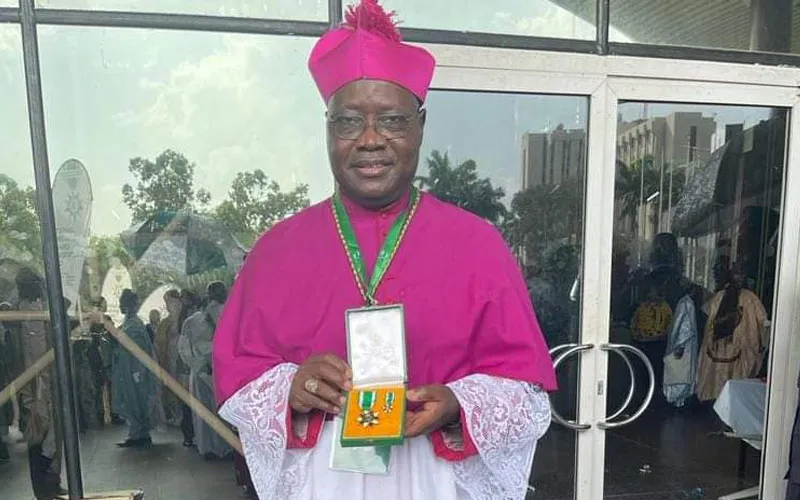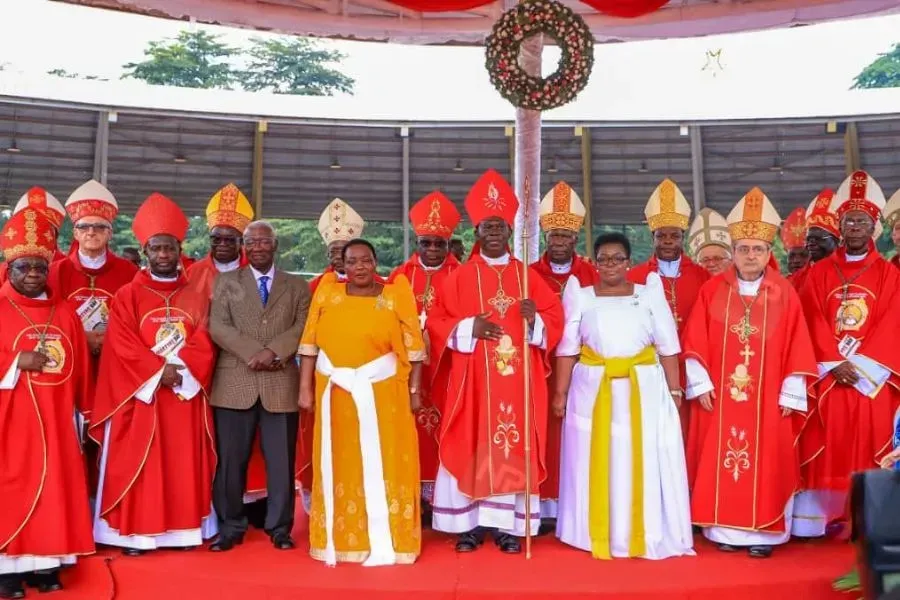He added, highlighting the criticism he had received, “Someone commented on the social media before I received the award: ‘Why is the bishop collecting the award in a country where hunger, insecurity, killing is the order of the day; who will tell the government the truth?’ After I received the award someone queried: ‘If you had rejected this, even politely, would you not have made a huge statement that you are on the side of the people?’”
In response to the criticism, the Catholic Archbishop wrote, “The award is not for my personal glory but it will certainly provide an opportunity on the platform of the “honoured” to speak to those authorities I can reach in favor of those trampled upon and the voiceless. In any case, the best award for me still remains the Catholic priesthood which the Lord has called me to over forty years ago.”
The 64-year-old Local Ordinary of Abuja who started his Episcopal Ministry in April 1995 as the Bishop of Jalingo Diocese in Nigeria said he found it baffling that those who wanted him to refuse the state recognition had not gone all the way to abscond government goodies.
“If those Nigerians urging that the awards be declined should be logical with their sentiments to the end, it means that they will equally reject the national budget presented recently by the President and refuse to accept the benefits flowing from the financial entitlements for their respective States or refuse to use federal facilities or infrastructure simply because they perceive that the government has not done well,” he said.
According to the Catholic Archbishop, to reject the national award based on the issues of injustice, insecurity, lack of essential amenities, is equivalent to distancing oneself from what he refers to as “project Nigeria”.
He urges Nigerians not to give up on their country “no matter how deficient or defective it may be,” noting that such disillusionment means “cursing the darkness instead of lighting a candle.”
“For selfish and sentimental reasons we cannot throw away the baby with the bath water, as some disgruntled Nigerians would like us to do,” he said, and added, “No matter how bad our country may be, I will stay here by the grace of God, work in it, and identify closely with those who suffer, while doing my spiritual and pastoral best to challenge the system that breeds corruption and bad governance.”
Archbishop Kaigama recalled that the Nigerian National Honours were instituted to be conferred every year upon Nigerians and friends of Nigeria, “To appreciate their loyalty and patriotism to the country. To reward the selfless service, the individuals have rendered. To further encourage the people recognized, to do more excellent work and meritorious services for the nation.”
The awards, he explained, are often conferred on the recipients by the Federal Government of Nigeria following a rigorous screening by the National Awards Committee and a careful security background check by the State Security Service.
“My understanding is that this is Nigeria’s award, not the President’s, to deserving citizens, not because they are the best Nigerians, but that they are seen as people who have contributed in some modest ways to the development and progress of the country, and so, perceived to be models for present and future generations,” the Archbishop of Abuja said.








